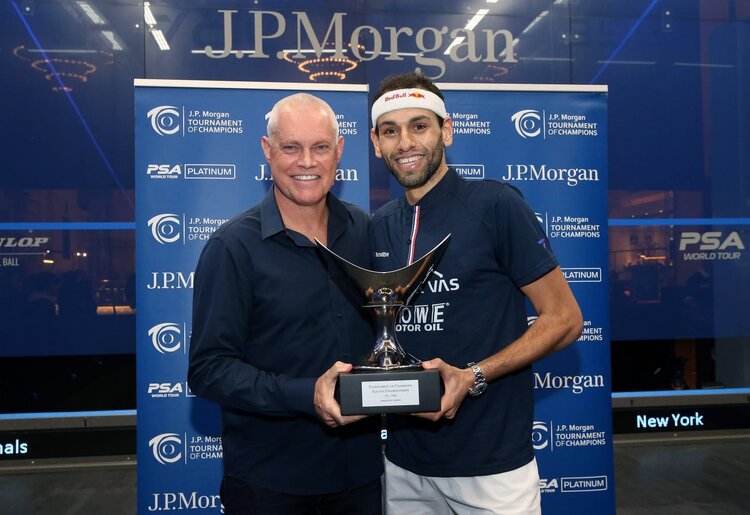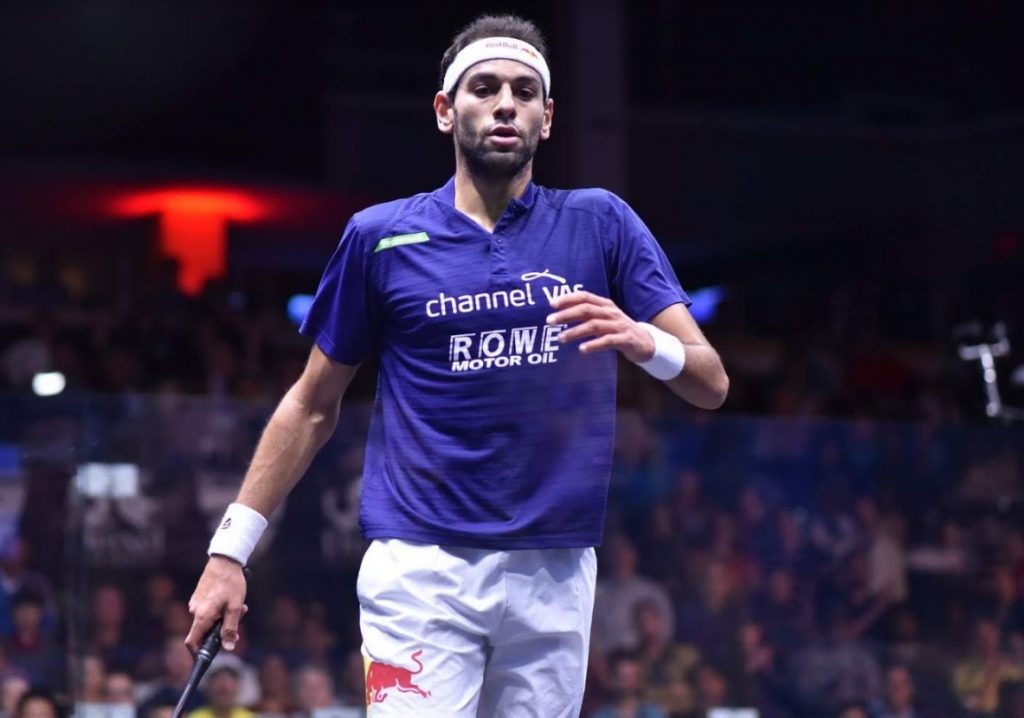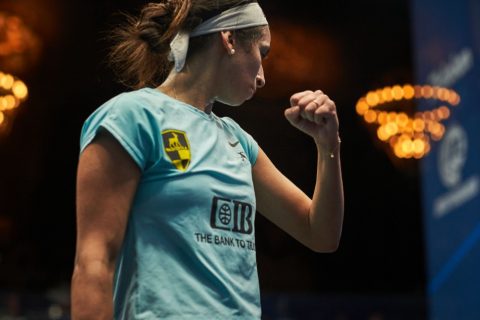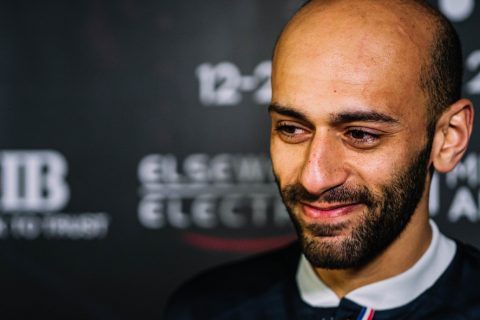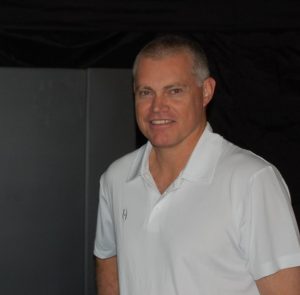 Rodney Martin, Mohamed ElShorbagy’s current coach, admits that he thought long and hard about hooking up with the man who has become the game’s dominant figure over the last decade for exactly that reason, and has issued a chilling warning to the PSA Men’s World Tour that the World No.1 still has “plenty room for improvement and a tremendous desire to make these improvements.”
Rodney Martin, Mohamed ElShorbagy’s current coach, admits that he thought long and hard about hooking up with the man who has become the game’s dominant figure over the last decade for exactly that reason, and has issued a chilling warning to the PSA Men’s World Tour that the World No.1 still has “plenty room for improvement and a tremendous desire to make these improvements.”
The three-time British Open runner-up said:
“I did not agree to start working with Mohamed without giving it proper consideration. When someone has been at the top for as long as he has then you know that there can be a lack of willingness to change and embrace things out with your comfort zone that have got you to number one in the first place.”
“The other thing I wondered was just how hard Mohamed was prepared to work to make the changes I felt could help him but none of that has been a problem with him. He really is one motivated guy.”
“Before we started working together, we did not know each other and I can honestly say it has been good to get to know Mohamed. We have a laugh and I very much enjoy working with him and hopefully he feels the same way about working with me!”
Since his player was voted PSA Male Player of the Year for the fourth time, ‘Super Coach’ Martin has fired some words to the wise to ElShorbagy’s rivals, that at 29 years of age there is still plenty of bite left in him.
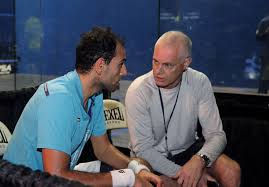 The former world champion, who is the only man to have beaten Pakistan squash legends Jahangir Khan and Jansher Khan in the same tournament, en route to his career-defining triumph at the 1991 World Championships, was enlisted by ElShorbagy last year to add variety and nuance to his attacking game and develop his tactics.
The former world champion, who is the only man to have beaten Pakistan squash legends Jahangir Khan and Jansher Khan in the same tournament, en route to his career-defining triumph at the 1991 World Championships, was enlisted by ElShorbagy last year to add variety and nuance to his attacking game and develop his tactics.
Martin has helped the Egyptian ace climb back to the top of the PSA World Rankings for a fourth time as he collected four PSA World Tour titles, including the Tournament of Champions, and deposed Ali Farag at the summit of the game to reclaim the top-spot after an 11-month absence.
But now the Australian has warned the rest that The Beast’s best is yet to come:
“First of all I’d like to congratulate Mohamed on being recognised as PSA Player of the Year. But what I would say is that he still has plenty room for improvement in certain aspects of his game and the bad news for the rest of the top players is that Mohamed still has a tremendous desire to make these improvements,” warned Martin.
He continued:
“I think to enlist me as his coach last year at the age of 28 really underlined how open minded Mohamed is. When you consider that he has been at the very top for most of the last decade and just regained the World No.1 slot for the fourth time in his career, that says a lot for just how determined Mohamed is to stay at the summit of our sport and to keep evolving his game in order to remain the man.”
“Do I believe he can get better technically, become more accurate, cut down on his errors and take it in shorter more aggressively and destructively? Yes, I do and that’s really bad news for the guys who want to take the World No. 1 ranking from him.”
“I think he has won 29 out of the 33 matches he played in the last season before the tour suspension and made six finals out of the eight tournaments he entered, so you have to commend Mohamed on just how consistent he is, but I still think he has more in the tank to kick on from here.”
While ElShorbagy’s longevity at the top of the PSA World Tour has built what is becoming an increasingly impressive legacy, Martin admits that the time had come for Mohamed to get smart in his approach in order to maintain his dominance into his thirties.
The Aussie squash legend said:
“Obviously when you have been at the top as long as Mohamed then there is going to be wear and tear on your body and you have to be a bit more astute. In that respect he does Pilates and spends a lot of time working with his physio to maintain his body and he has tapered his schedule down accordingly to fit in rest and give him the best chance of producing his best squash when he is on the match court.”
“Mohamed is maybe not quite as quick as he was when he was 20 and he appreciates that now when things are not going his way he has to have a ‘Plan B’ that is not just playing at a higher tempo and more aggressively.”
“So, in practice since we have been working together he has put a lot into improving the technical aspects of his game that will allow him to vary his play and counter an opponent when things are not plain sailing.”
“But Mohamed is one motivated individual and I know how hard he is prepared to work to improve his game and just how determined he is to keep building his squash. Since I have been working with him that has been something that has really come across and impressed me greatly about Mohamed, in a nutshell that is why he has been at the top for so long.”
Looking at the opposition
Interestingly enough the shrewd Aussie has made a key part of ElShorbagy’s development an appreciation of just what firepower his rivals are packing when they come hunting The Beast. Martin revealed:
“Obviously there are other parts to our player and coach relationship and an important one is that I am constantly watching the opposition, scouting their strengths and weaknesses, so that when it comes to what I’m doing with Mohamed there is payback on that.”
“I think that before we started working this was something that Mohamed didn’t take too much notice of but we are taking a real close interest in the other guys and his eyes are now firmly open to what his rivals are going to try and come after him with! He definitely has a far better understanding and awareness of what his opponents are trying to do.”
Cutting the errors
A hard task master the no nonsense Australian has also insisted on a lifting of standards on the practise court:
“I have also worked hard on making sure that the quality of practise and work on the training court is higher and that the error count is cut and I think as the season evolved you could see things coming together in all of this,” revealed Martin.
He added: “For me in coaching terms, possibly Mohamed’s best performance was against Joel Makin at the Tournament of Champions when he produced an accurate disciplined performance that had a very low error count and he completely controlled a world class player in winning comfortably 3-0.”
“But in Mohamed’s final match before the suspension of the tour at the St. James’s Place Canary Wharf Classic against Ali Farag there were also an awful lot of pleasing parts to his performance that were not there the season before.”
“But like I say there is still plenty more to come!”

